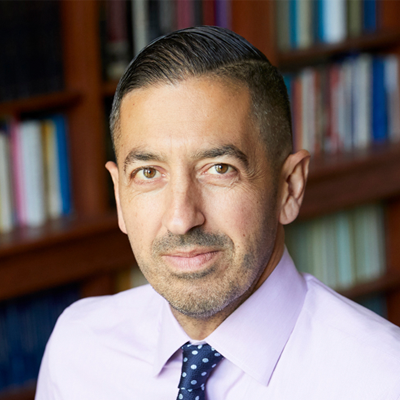
Speakers

Professor Sandro Galea, MD, MPH, DrPH, Boston University School of Public Health
Sandro Galea, a physician, epidemiologist, and author, is dean and Robert A. Knox Professor at Boston University School of Public Health. He previously held academic and leadership positions at Columbia University, the University of Michigan, and the New York Academy of Medicine. He has published extensively in the peer-reviewed literature and is a regular contributor to a range of public media, about the social causes of health, mental health, and the consequences of trauma. He has been listed as one of the most widely cited scholars in the social sciences. He serves as chair of the Boston Board of Health, is past chair of the board of the Association of Schools and Programs of Public Health and past president of the Society for Epidemiologic Research and of the Interdisciplinary Association for Population Health Science. He is an elected member of the National Academy of Medicine. Galea has received several lifetime achievement awards. Galea holds a medical degree from the University of Toronto, graduate degrees from Harvard University and Columbia University, and an honorary doctorate from the University of Glasgow.
Abstract
Within reason? Ensuring public health matters in coming decades
Public health is at a watershed moment. The challenges of the pandemic allowed us to showcase the strengths of public health, and also exposed many of our weaknesses. It is time for an honest reckoning with what we did right, and wrong over the past few years to the end of nurturing a consequential public health. This presentation will discuss the potential, and challenges of public health at this moment, and point to opportunities for us to invest in a stronger public health in coming decades.

Alison Cox, Policy and Advocacy Director, NCD Alliance
Alison Cox is Policy and Advocacy Director at the Noncommunicable Disease Alliance (NCD Alliance) and is responsible for policy strategy development and delivery across the organisation’s strategic impact goals of Prevention, Care and Financing.
Having begun her career with environmental campaigning organisations including Greenpeace International, Alison went on to lead strategy development and direct advocacy for global public health alliances: for the Framework Convention Alliance, bringing the civil society to voice to the WHO treaty on tobacco control, and in the early years of the NCD Alliance (2011-12) leading on Rio+20 advocacy to ensure NCDs were recognised in what became the SDGs, and on developing our first strategy.
As Prevention Director at Cancer Research UK (2013-21), she led successful national campaigns for restrictions on tobacco and junk food marketing, and built an international programme to support tobacco control advocacy in LMICs.
In 2021 as Policy & Research Director for the Global Climate & Health Alliance, she coordinated the delivery to the global climate summit, COP26, of the Healthy Climate Prescription from organisations representing 46 million health professionals worldwide.
Abstract
A World Out There: NCD prevention research in the Global Health and Development Policy Agenda
This keynote talk will take the broad view of prevention research, first sketching out the current outlook of the global health and development agenda and then considering how research can support progress in the political processes of global and national level policy cycles.
2023 is the mid-point in the Sustainable Development Goals, and steps are already in train to develop the post-2030 vision at the UN Summit for the Future in 2024. With the climate crisis, pandemics and conflict dominant themes we need to ensure the relevance of the drivers of the NCDs, and the multisectoral solutions for their prevention are well understood.
The 4th UN High Level Meeting on NCDs in 2025 will be a key moment for both holding governments to account for their commitments to date and for setting out the stall and engaging at the highest level in this broader global agenda.
Research evidence plays a key part in each of the stages of such cycles: setting goals and high level commitments; development of policy, plans and technical guidance; implementation; and back around to accountability against commitments. However, experience proves again and again, this is politics not science.
In the labyrinth of real world policy-making and implementation, working together with advocates provides researchers with the best chance of navigating their way to impact.
Panel discussion participants (UKPRP Consortia Directors)
Professor John Wright – Act Early
Professor Ruth Hunter – GroundsWell
Professor Tim Hobbs – Kailo
Professor Petra Meier – SIPHER
Professor Linda Bauld – SPECTRUM
Professor Mathew Hickman – TRUUD
Professor Gene Feder – VISION